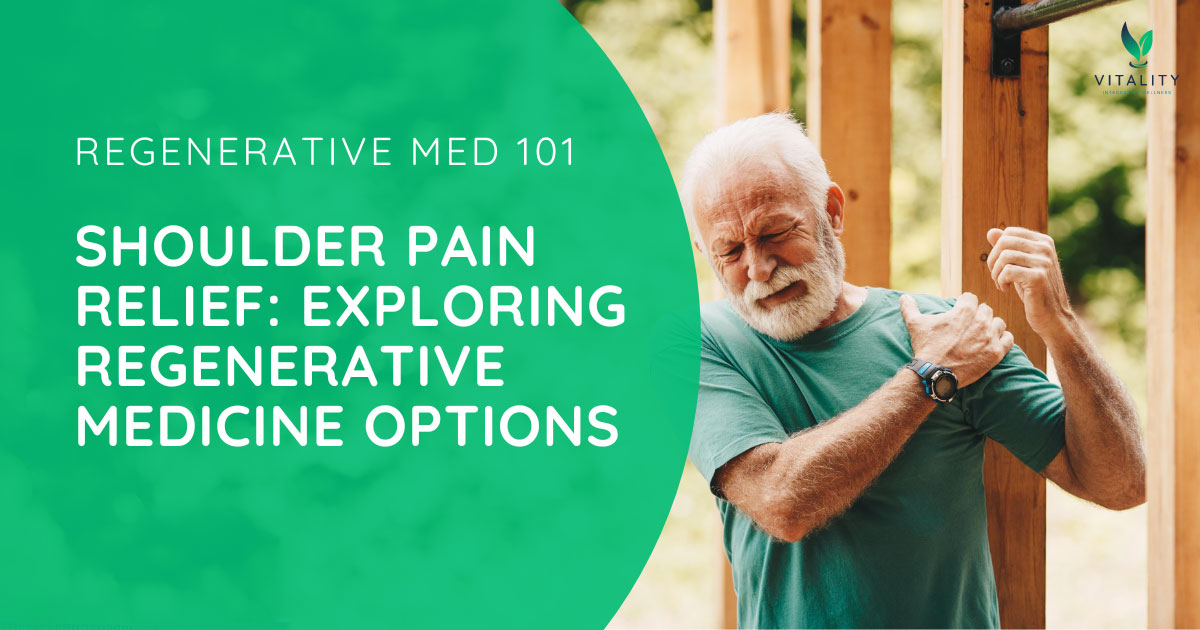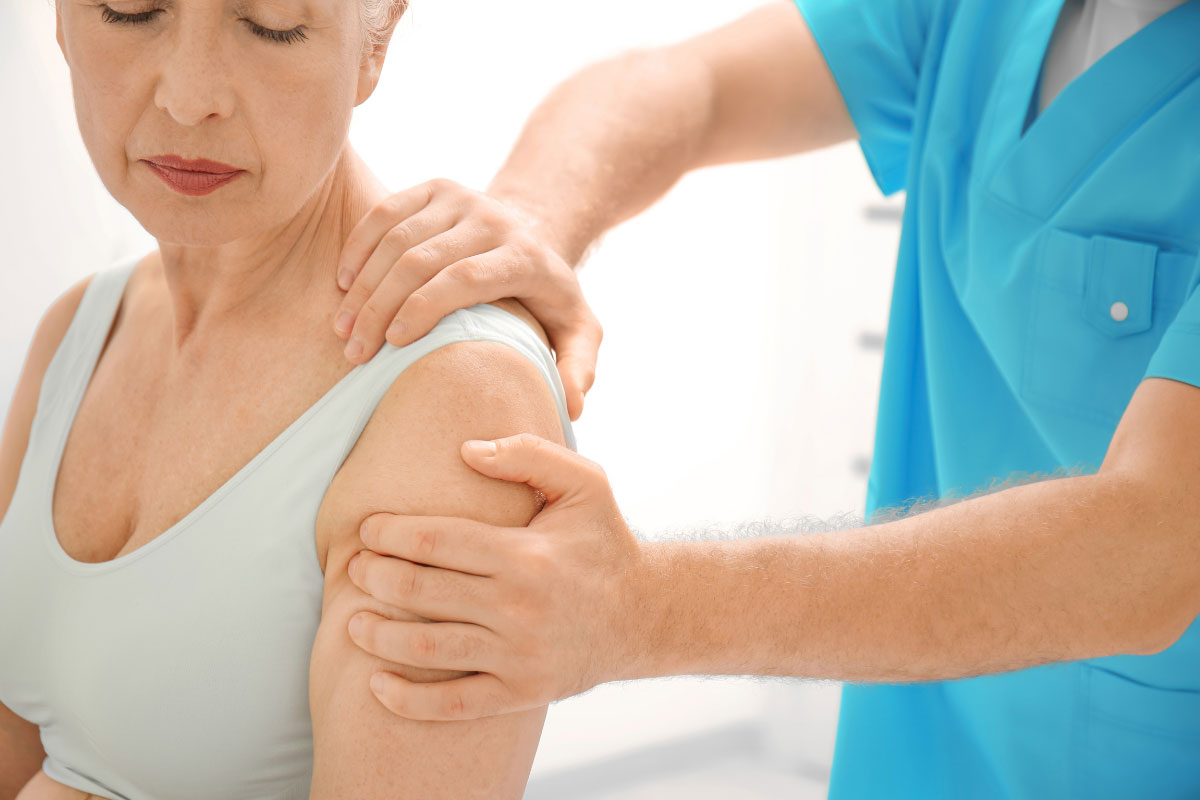
Common Reasons for Shoulder Pain

Even though a wide variety of medical conditions can result in severe shoulder pain, the majority of situations can be traced back to a few usual suspects:
-
-
- Poor posture
- Wear and tear
- Aging
- Infection/underlying illness
- Injury
- Repetitive motions
-
Because shoulder pain can have such a wide variety of causes, it’s important for us to understand your condition and get to the root cause of it. Many of our clients spend years looking for relief from doctors or even orthopedic surgeons, only to come up short.
Fortunately, minimally-invasive regenerative medicine techniques can offer some shoulder pain sufferers long-lasting relief. We've successfully treated patients with arthritis and degenerative joint disease for over two decades and have been incorporating regenerative medicine into our practice for the past seven years to safely treat chronic pain conditions with amazing results.
What Regenerative Medicine Treatments Can Be Used to Treat Shoulder Pain?
By using the body's natural healing processes, treatments like platelet-rich plasma therapy, Prolotherapy, and Tissue Allograft therapy may help not only reduce pain in the shoulder pain but also help repair damaged tissue, rejuvenating the joint itself.
Regenerative medicine options that may be used to treat shoulder pain include:
- Platelet-rich plasma (PRP) therapy: a procedure that injects the patient's blood platelets into the affected area or shoulder joint to stimulate healing and reduce inflammation.
- Prolotherapy: a regenerative medicine that uses a solution of nutrients injected into the afflicted area to stimulate tissue growth and reduce pain.
- Tissue Allograft therapy: a procedure that involves injecting umbilical cord-derived Wharton’s Jelly into the needed area. The injection encourages tissue regeneration.
- Ozone therapy: pure, medical-grade ozone stimulates cellular metabolism and promotes cellular rejuvenation, enhancing the body's natural healing abilities.
What Shoulder Conditions Can Regenerative Medicine Treat?

Rotator Cuff Injuries
Rotator cuff injuries occur when the tendons in the rotator cuff get stuck beneath the shoulder's bony structure. If you tear your rotator cuff, you may experience a crackling sensation and intense pain. We use regenerative medicine to help with rotator cuff injuries because it stimulates the body's natural healing process and may help repair torn tendons. Our patients typically find their pain levels diminished and their mobility restored.
Bursitis
These fluid-filled sacs reduce friction between all the moving parts of your shoulder. However, if you sustain an injury, overuse your shoulder, or have an infection, the bursae may become inflamed, leading to decreased mobility and a lot of pain. Thankfully, regenerative treatments can also effectively treat bursitis by promoting healing and reducing inflammation in the affected bursae. By addressing the root cause of the inflammation, patients can experience relief from pain and an improved range of motion in their shoulders.
Osteoarthritis:
Osteoarthritis is a degenerative joint disease that can cause the cartilage in your shoulder joint to wear down faster than it normally would. We find patients who come to us for help with this condition are typically experiencing a lot of pain, stiffness, and reduced range of motion. Their day-to-day lives are usually drastically impacted. We find that regenerative medicine can help stimulate the growth of new cartilage in the affected area and reduce inflammation in the joint.
Tendonitis
It occurs when the tendons in the shoulder become inflamed due to overuse or injury. Many patients with tendonitis experience a sharp, shooting pain in their shoulder that worsens with movement. We offer treatments such as platelet-rich plasma therapy and rehabilitation therapies to help repair damaged tendons and lessen the pain. By addressing the underlying cause of tendonitis, patients may regain full function in their shoulders and finally find relief from chronic pain.
Treatment of Extreme Shoulder Pain with Regenerative Medicine
Regenerative medicine offers various individualized treatment options. This variety of therapies means we can treat many more shoulder pain conditions than those listed above, like labral tears and muscle strains. If you are struggling with chronic shoulder pain or have been told your only option is surgery, schedule a consultation with us first.
We’ll conduct a comprehensive assessment of your situation and help you consider your options.

